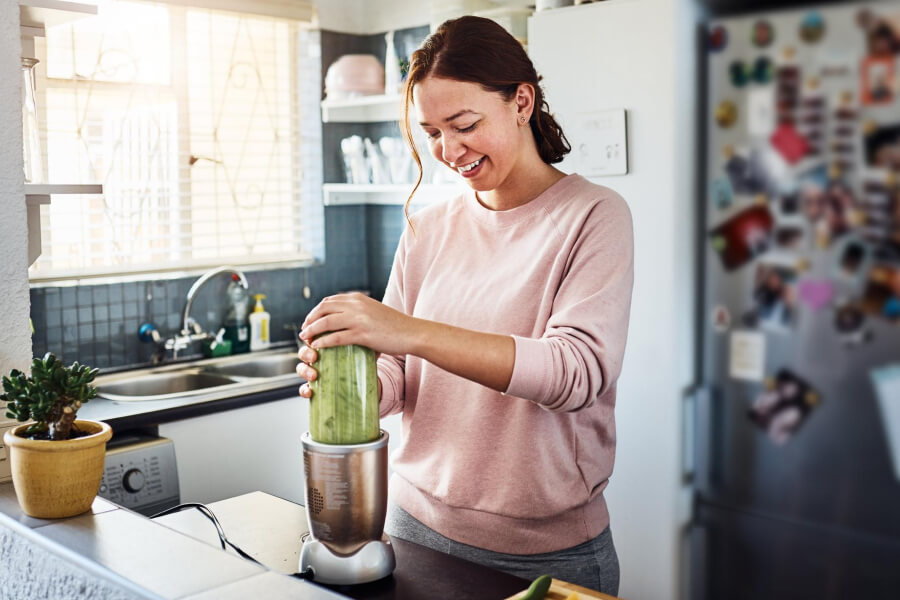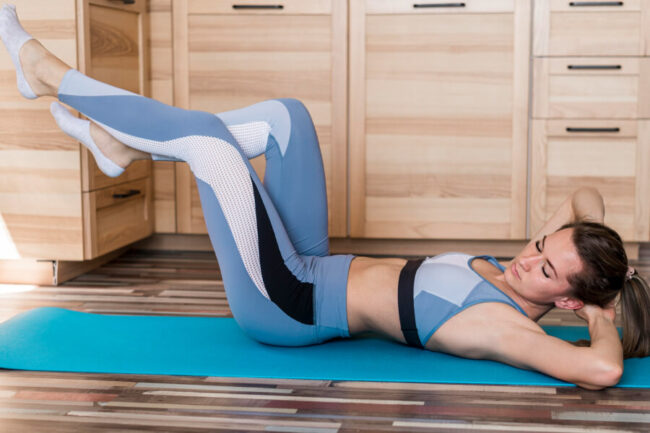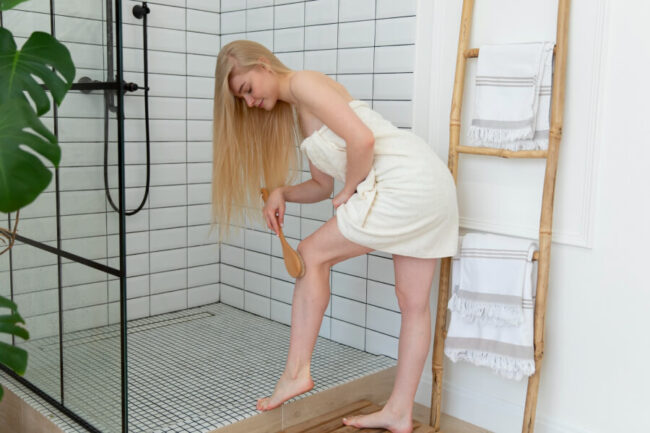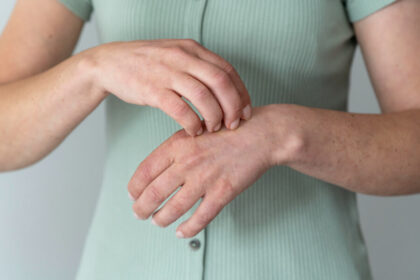Hemorrhoids can be uncomfortable and even painful. These swollen veins in the rectum and anus can cause itching, pain, and bleeding.
While there are actual effective treatments are available, many people prefer natural remedies that can be easily found in their kitchen.
In this comprehensive guide, we will explore effective home remedies to prevent hemorrhoids, lifestyle changes that can help relieve symptoms you feel, and when you need to seek professional help!
5 Natural Remedies to prevent Hemorrhoids
Warm Sitz Baths
A warm sitz bath can help with immediate relief from the discomfort of hemorrhoids. By sitting in a shallow bath of warm water, you can reduce swelling and help the area to heal.
How to use:
- Fill your bathtub or a large basin with warm water to sit in.
- Sit in the water for 15-20 minutes, ensuring the affected area is submerged.
- Do this process 2-3 times a day, especially after bowel movements.
Witch Hazel Compress
Witch hazel is a natural remedy with anti-inflammatory properties, making it an effective remedy to prevent hemorrhoids symptoms.
How to use:
- Soak a cotton pad or ball in witch hazel.
- Gently apply it to the affected area for a few minutes.
- Repeat it several times a day as needed.
Aloe Vera Gel Application
Aloe vera is known for its soothing and healing properties, which can be particularly beneficial for hemorrhoids.
How to use:
- Apply pure aloe vera gel directly to the hemorrhoids part.
- Use it 2-3 times a day to reduce inflammation and discomfort.
Coconut Oil for Soothing Relief
Coconut oil helps with pain and swelling from hemorrhoids.
How to Use:
- Apply a small amount of coconut oil to the affected area.
- Repeat the application several times a day.
Ice Packs to Reduce Swelling
Cold therapy is a quick way to reduce swelling and numb the pain of hemorrhoids.
How to Use:
- Wrap a few ice cubes in a clean cloth or use a cold pack.
- Apply to the affected area for 15-20 minutes.
- Repeat as needed, ensuring you do not apply ice directly to the skin.
3 Lifestyle Changes for Hemorrhoids Treatment
High Fiber Diet to Prevent Constipation
A diet high in fiber can help prevent constipation, which is a common cause of hemorrhoids. Fiber softens stools and promotes regular bowel movements, reducing the strain on the rectum.
Tips:
- Include plenty of fruits, vegetables, whole grains, and legumes in your diet.
- Aim for at least 25-30 grams of fiber daily.
Stay Hydrated
Drinking plenty of water helps to soften stools and maintain regular bowel movements, which can prevent the formation of hemorrhoids.
Tips:
- Drink at least 8-10 glasses of water daily.
- Avoid caffeinated and alcoholic beverages, which can dehydrate you.
Regular Exercise for Better Bowel Movements
Exercise helps digestion and can prevent constipation, reducing the risk of hemorrhoids.
Tips:
- Engage in moderate exercise, such as walking, swimming, or cycling, for at least 30 minutes a day.
- Avoid prolonged sitting or standing to reduce pressure on the rectal veins.
Home Treatments to Prevent Hemorrhoids
Use Creams and Ointments
There are several over-the-counter creams and ointments designed to reduce hemorrhoid symptoms, such as itching, swelling, and pain.
How to Use:
- Follow the instructions on the product label.
- Apply as directed, typically after bowel movements and at bedtime.
Moistened Wipes for Gentle Cleansing
Using moistened wipes instead of dry toilet paper can reduce irritation and discomfort during bowel movements.
Tips:
- Choose alcohol-free and fragrance-free wipes to avoid further irritation.
- Gently pat the area clean instead of wiping vigorously.
Choosing Cotton Clothing for Comfort
Wearing loose, breathable clothing can help reduce moisture and irritation in the anal area.
Tips:
- Wear cotton underwear and loose-fitting pants.
- Avoid tight clothing that can trap moisture and heat.
When to Seek a Doctor
While home remedies to prevent hemorrhoids can be effective for managing mild to moderate hemorrhoid symptoms, there are times when professional medical help is necessary.
Seek medical attention if you experience:
- Severe pain or bleeding
- Symptoms that persist for more than a week despite home treatment
- A noticeable lump or swelling that doesn’t improve
- Difficulty with bowel movements or severe constipation
- Fever or signs of infection
How to Prevent Hemorrhoids?
Prevention is always better than cure. Here are some tips to prevent hemorrhoids:
Maintain Good Hygiene: Keep the anal area clean and dry.
Avoid Straining: Don’t strain during bowel movements; take your time.
Use the Bathroom When Needed: Don’t hold in bowel movements; go when you feel the urge.
Elevate Your Feet: When sitting on the toilet, prop your feet up on a small stool to change the angle of the rectum for easier passage of stools.
Conclusion
Hemorrhoids can be a painful and uncomfortable condition, but with the right home remedies and lifestyle changes, you can manage and alleviate the symptoms effectively.
Remember to consult a healthcare professional if your symptoms persist or worsen. By incorporating natural remedies and making healthy lifestyle choices, you can find relief and prevent future occurrences.
FAQs
What are hemorrhoids?
Hemorrhoids are swollen veins in the lower rectum and anus, often caused by straining during bowel movements, chronic constipation, or pregnancy.
When to see a doctor?
You should see a doctor if you experience severe pain, bleeding, symptoms that persist for more than a week, or signs of infection.
How To Prevent Hemorrhoids?
Prevent hemorrhoids by maintaining good hygiene, avoiding straining, using the bathroom when needed, and following a high-fiber diet.
What are Piles?
Piles is another term for hemorrhoids, referring to swollen veins in the rectum and anus.
What are the symptoms of hemorrhoids?
Symptoms include pain, itching, swelling, and bleeding during bowel movements.
How to get rid of hemorrhoids?
Manage hemorrhoids with home remedies, lifestyle changes, and over-the-counter treatments. Seek medical advice for severe or persistent symptoms.
What Not to Do With Hemorrhoids?
Avoid straining during bowel movements, using harsh toilet paper, and sitting for prolonged periods. Wear breathable clothing and maintain proper hygiene to prevent hemorrhoids and irritation.








